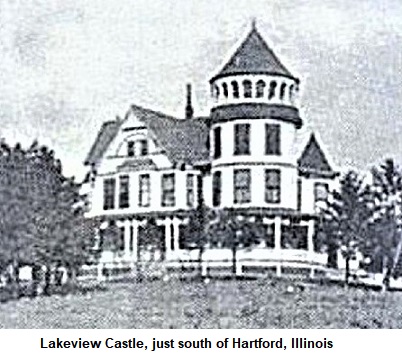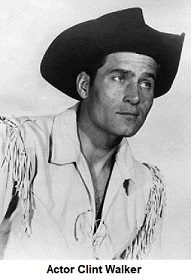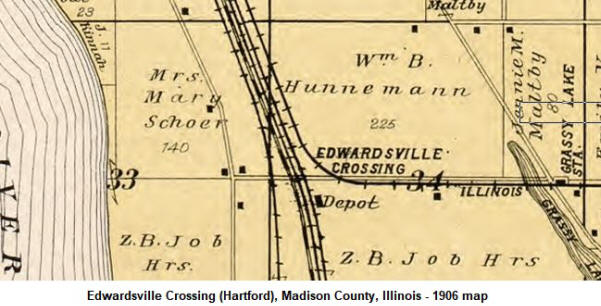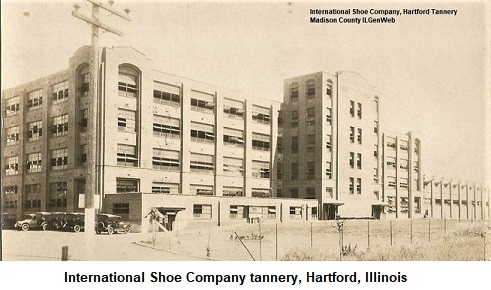Early Hartford History
Early Settlers
The area that would become Hartford was rich farmland in the
American Bottoms in Wood River Township, with little population
other than Zephaniah B. Job, Seth T. Sawyer, and William Shore.
Zephaniah B. Job, one of the few land owners of the area, cleared
land in 1850, and constructed a warehouse and dock along the
Mississippi River. In 1861, the Madison Coal Company used the
landing to ship their coal by boat. Other land owners in 1861
included S. B. Gillham, J. Vaughn, and I. Smith. When
railroads were constructed, the area became known as Edwardsville
Crossing, where the tracks led further south or east to
Edwardsville. A depot and hotel were constructed there at the
crossing. By 1873, a road had been constructed which led from East
Alton south through Chouteau Township. When the city of Wood River,
just north of Hartford, was incorporated in 1908, Edwardsville
Crossing (Hartford) earned the nickname, “South Wood River.”
Lakeview Castle Near Hartford
In 1897, Benjamin Biszant, a Frenchman, built a large “castle-like”
estate in Chouteau Township, near the future Hartford. The estate
was a gift for his English bride. It contained 14 rooms, with floor
to ceiling mirrors and elegant chandeliers. Much on the materials in
the home came from France. The floors and hand-carved columns which
supported the ceiling were made of imported cypress wood. Benjamin
Biszant's hobby included making figures out of concrete, and on the
grounds were several concrete dog figures, cannons, and a bridge
which led to the island in the middle of a small lake.

Workers with teams of horses dug a moat, which encircled a small
island. Dirt from the moat provided the hill on which the home was
built. Biszant and his wife enjoyed throwing lavish parties, and
area residents often heard music drifting down from the castle on
summer evenings. Guests at Lakeview used the estate’s lakes for
boating, fishing and swimming. The Biszants received so many guests
who arrived by rail that railroad maps of the 1890s listed "Station
of Lakeview." Biszant erected a decorative station by the railroad
tracks to accommodate Lakeview’s many visitors.
In the early years of the twentieth century Biszant’s wife died.
According to the Edwardsville Intelligencer, Biszant fell into the
clutches of spiritualists, and lost a good part of his fortune. They
led Biszant to believe he could get into communication with the
spirit of his wife, and soon after, his old home became known as the
"Spook House." Sometime after attending to her burial in England, he
sold Lakeview and moved to California. The Hartford Castle then
began its slow, inevitable decline.
The home passed on to the ownership of his son, J. J. Biszant. By
1913 the home became plagued with vandalism. One fellow named Mark
Podner broke into the home, and after his arrest, claimed he became
lost in the maze of mirrors and could not get out of the house. He
told of hidden passageways, a musty dungeon, terrifying moans, high
pitched shrieks and cries of pain from various parts of the
building. Podner attempted to hang himself while in jail.
J. J. Biszant reportedly sold Lakeview Castle to Lake View Military
Academy, but it must have reverted back to Bisazant, as in 1919 it
was Biszant who sold the home to two St. Louis doctors who planned a
sanitarium there. It was also going to be sold to James Marquis of
Alton to be used as a roadhouse, but Marquis' death broke up the
plans. A newspaper article stated "Lakeview changed ownership
frequently and became, among other things, a boys’ military school,
a home for unwed mothers and even a speakeasy during the Prohibition
era. The castle was sold in 1923 to a Wood River couple who occupied
it until 1964. During the ensuing years, Lakeview was alternatively
rented out or left vacant.
In March of 1973 the Hartford landmark was destroyed by fire. Owners
Dr. and Mrs. S. S. Nemec (who had moved out), said vandals had
previously reduced the home to a shell. Curiosity seekers still try
to glimpse a few remnants of the old castle, or a ghost who is said
to wander aimlessly. However, current property owners have a “no
trespassing” sign, to discourage any visitors so no one gets hurt.
The International Shoe Company
In 1916, the International Shoe Company opened two large tanneries
(they owned a total of eight tanning factories in America) in the
future Hartford. The $8,000,000 plant would be the largest industry
in the area, employing over 1,200 men and women. The tanneries
supplied leather to 48 shoe factories, the vast majority of which
were located in rural Missouri and Illinois. Popular brands included
Star, Diamond, Vitality, and Dolly Dodd brands, as well as the
famous Red Goose Shoes. Approximately 27,500 cattle hide from the
National Stock Yards were processed each week into shoe leather – a
110-step process that lasted 37 days. The tannery closed in 1964.
Hartford Incorporated
Hartford was incorporated as a village in 1920. Local residents had
a prolonged debate over the name to bestow upon the community – some
insisting on “Tannery City” after the International Shoe Company.
However, the name Hartford was chosen, and Kirby Turpin was named
the first mayor.
A Star is Born - Clint Walker
 On
May 30, 1927, twins were born in Hartford to Paul Arnold and Gladys
Huldah Walker. The boy was named Norman Eugene “Clint” Walker, and
the girl was named Lucy Walker. After leaving school to work at a
factory and then a riverboat, Clint joined the U.S. Merchant Marines
during the last months of World War II. He then worked at odd jobs
in Texas, California, and Nevada. His good looks and imposing
physique (he stood at 6 feet, 6 inches tall) helped him land an
audition where he won the lead role in the TV series, “Cheyenne.” He
was cast as Cheyenne Bodie, a roaming cowboy hero in the
post-American Civil War era. Clint frequently returned to the
Hartford and Alton area to visit his sister. He would work out at
the Alton Y.M.C.A., attracting huge crowds. Clint Walker died May
21, 2018 in California, nine days before his 91st birthday.
On
May 30, 1927, twins were born in Hartford to Paul Arnold and Gladys
Huldah Walker. The boy was named Norman Eugene “Clint” Walker, and
the girl was named Lucy Walker. After leaving school to work at a
factory and then a riverboat, Clint joined the U.S. Merchant Marines
during the last months of World War II. He then worked at odd jobs
in Texas, California, and Nevada. His good looks and imposing
physique (he stood at 6 feet, 6 inches tall) helped him land an
audition where he won the lead role in the TV series, “Cheyenne.” He
was cast as Cheyenne Bodie, a roaming cowboy hero in the
post-American Civil War era. Clint frequently returned to the
Hartford and Alton area to visit his sister. He would work out at
the Alton Y.M.C.A., attracting huge crowds. Clint Walker died May
21, 2018 in California, nine days before his 91st birthday.

